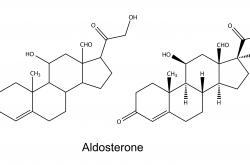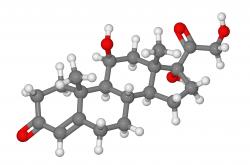Stressors That Can Inhibit Adrenal Recovery
Adrenal fatigue patients often spend years working to heal their damaged adrenal glands and regain the good health they have lost. Throughout that period, they often suffer setbacks to their efforts. Those setbacks can be extremely frustrating, especially for patients who have done their best to stick to their recovery plans. What many often fail to consider is that there are a whole host of issues that can exert unexpected pressure on the adrenals and thereby slow down or stall the progress these patients need.
For anyone suffering from hypoadrenia, nothing is more frustrating than a recovery effort that seems to be yielding few positive results, And yet, millions of adrenal fatigue patients routinely find that their recovery from exhaustion is slower than they had hoped it would be or not occurring at all. If your attempt to heal your adrenals and regain your lost energy seems to be stalled, it’s time to review your recovery plan. That review entails a careful examination of the changes you’ve made in your lifestyle, and consideration of some possible unaddressed issues that may be putting pressure on your adrenals.
Now, before you panic and assume that your plan is failing, you need to remember a few key points:
- If you are currently in the midst of a recovery effort that has been underway for less than two months, it is a good idea to give that plan a little more time. Often times, it can take several months before the adrenals begin to demonstrate signs that they are healing.
- Do not simply abandon your existing plan. If those lifestyle changes have not yet had the results you need, then you want to modify the plan – not completely replace it.
- Go through a list of lifestyle changes that you think you have made. Make sure that you have actually followed through on each of those goals. Many times, a stunted recovery is just an indication that a patient has been neglecting one or more of those changes.
- Do not overlook the seemingly routine aspects of your plan. Things like deep breathing and increased physical activity are not mere suggestions – they are vital components of any successful effort to manage and minimize stress and take pressure off the adrenals.
- Remember that supplements are an important part of most people’s recovery effort as well. Your adrenals need the nourishment and support that those vitamins and minerals provide.
If you are satisfied that you have covered all of those key areas, then a deeper examination of your efforts will have to be conducted. This will require an honest assessment of several key lifestyle issues, as well as consideration of some possible hidden stressors that may be impacting your recovery efforts. Together, these stressors are often referred to as body burdens, since they create such stress on the body that the adrenals are often unable to keep pace.
Lack of Sleep
Along with a nutritious diet and regular exercise, sleep is recognized as being a primary component of sound health. Even minor disruptions in your sleep patterns can have severe consequences for your overall health – and nowhere are those consequences more acutely felt than in the adrenal glands. Without the proper amount of sleep, patients can experience a wide range of health difficulties. These can include everything from erratic cortisol levels to increased production of estrogen and decreased resistance to illness and disease.
All of these conditions can create a burden on the body that forces the adrenals to try to produce more hormones to counteract the stress. That weakens the adrenals even more, which results in even greater imbalances in hormone production as time goes by. The cumulative effect of the added stress prevents the adrenals from receiving the time and support they need to properly heal, which in turn delays your recovery.
To avoid that, it is necessary for adrenal fatigue patients – and, indeed, everyone who wants to avoid the negative consequences of insufficient sleep – to ensure that they receive at least eight hours of sleep each night.
Dental Problems
Though it may seem counterintuitive to suggest that oral health can somehow impact the adrenals, it is nevertheless true. There are many different issues that can affect the teeth and gums, and all of them can create undue stress that ends up negatively impacting the adrenal glands. Issues such as infections after a root canal, decaying teeth, infected gums, cavities, and poorly executed dental work can all create the type of body burdens that end up impeding adrenal recovery.
In addition to those problems, mercury can also be a major concern. Often times, patients can trace the onset of their fatigue symptoms to a period immediately following a trip to the dentist. Mercury fillings can sometimes result in traces of the metal finding their way from the filling to the rest of the body. Mercury’s effect on cortisol levels is well document: it inhibits cortisol. Worse, it targets the adrenals themselves, denying them the ability to produce the hormone at the levels the body needs.
If you have had dental work that included silver fillings over the last several years prior to the onset of your fatigue, or have sought such work even after your condition set in, there is a good chance that your adrenals may have come into contact with the mercury toxin. Consult with your dental provider and ask about the specific filling materials he or she used, so that you can determine for certain whether or not your dental work has been preventing you from enjoying a more rapid recovery.
Lack of Access to Fresh Air
One of the most often overlooked factors in good health is the availability of fresh, oxygen-rich air. That is not to say that a large number of people lack any access to fresh air, of course. The air is there; it is just that many people now lead lives where their contact with quality fresh air is minimal at best. Untold millions of people live in climate-controlled buildings, or work in similar environments that require many long hours in ventilated rooms. That can result in a basic deprivation of the one thing that none of us can live without for more than a few moments: oxygen.
To correct this deficiency, you have a number of options available to you. You can commit to having your ventilation system cleaned on a more regular basis so that increased levels of oxygen are delivered to you. You can also obtain an oxygen machine that will generate fresh air for an indoor office or even your home. The best option, however, is to stick with the oldest solution for a lack of fresh air: spend more time outdoors.
Thyroid Problems
For decades now, researchers have understood that the thyroid has a powerful role to play in the health of the adrenals. Like the adrenal glands, the thyroid can be negatively impacted by abnormally high levels of stress. The problem is that the thyroid is responsible for managing energy production at a cellular level, so when it is not functioning at peak efficiency, those energy levels can be negatively impacted. Given that a loss of energy is one of the most distressing aspects of adrenal fatigue, any additional disruption in the body’s available energy can exert an incredible amount of stress on those adrenals.
Problems with this gland are often difficult to diagnose, since test results at the low end of the normal range don’t often reveal themselves in standard blood exams. Fortunately, there are some tests that you can do at home to try to determine whether your thyroid is playing a role in your exhaustion. Keep in mind that none of these tests are dispositive in and of themselves, but that when half or more of these conditions are present, it can be a strong indicator of thyroid difficulty.
Home Tests for Thyroid Distress
You may be experiencing problems with your thyroid if…
- You experience otherwise unexplainable weight gain - particularly around the thighs and hip area -even as you are eating a healthier diet as part of your recovery program.
- You find that your base body temperature first thing in the morning is lower than 98.2 degrees Fahrenheit.
- After exercising for several weeks, you feel even more exhausted.
- You find yourself suffering from cloudy thinking and slow reaction while driving or during physical exercise.
- You hit that normal adrenal fatigue wall after 9 PM, but never get that typical adrenal fatigue 11 PM “second wind.”
- You go through each day feeling tired and half-asleep.
- You suffer from thinning eyebrows.
- You fail to experience any energy increase after your dinner meal.
Again, you should see half or more of these signs present if your thyroid is not performing as it should. If that is the case, there are some things you can do to aid the thyroid so that it doesn’t further impeded your adrenal recovery. Chief among these is the use of a hypothalamus extract to provide the support the thyroid needs for normal activity. In addition, you can work to provide your thyroid with more nutrition through supplements. For example, L-Carnitine and Iodine are two supplements that are often recommended for this type of supplementation.
Intestinal Dysbiosis
Another common body burden is known as intestinal dysbiosis – which is a condition where the bacteria within the intestines become unbalanced. This is frequently caused by the use of antibiotics, as many antibiotics attack and destroy and bacteria with which they come into contact. That results in them killing not only the bacteria that cause illness, but also the naturally occurring bacteria responsible for keeping more harmful microorganisms in check.
This condition can also be caused by a failure to eat the proper amount of fruits and vegetables, and a failure to ingest sufficient levels of fiber on a regular basis. Many of the most common processed foods can also contribute to the problem, since their high concentration of sugar can help to facilitate the environment most favored by those harmful bacteria.
Fortunately, this is a condition that can be discovered and treated fairly easily. There are low-cost urine and blood tests that can detect this imbalance, as well as the types of bacteria that are currently dominant within the intestines. That detection enables doctors to recommend the right treatment regimen to restore the proper bacterial balance.
Respiratory Infections
Given the important role that our breathing plays in overall health, it should come as no surprise that anything that directly impact respiration in a negative way creates a burden on the body. If you’re suffering from an infection of the respiratory system, your adrenal recovery plan will never be able to fully recover. That’s because the stress of the ongoing infection simply cannot be overcome until the infection is gone. If you’ve been diagnosed with such an infection, it is vital that you take the necessary steps to address the problem. This may entail a trip to the doctor for more serious infections, but most minor ailments can be addressed through nutritional supplementation and a focus on increasing the strength of your immune system.
Poor Quality Food
As part of your recovery effort, you have no doubt already made an effort to improve the way you eat. Still, it is not only what we eat that can make us sick, but the quality of that food. If you are eating a healthy, well-balanced diet and still not enjoying the recovery you anticipated, then it is perhaps time to evaluate the quality of the food items on your grocery list. Make sure that you are eating as many whole foods as possible and avoiding foods that have been overly processed. Remember, the more processing any food item has received, the fewer nutrients it still retains.
Food Allergies
Even when you are eating healthier, food can still be a body burden for you if the foods you are eating are causing any type of an allergic reaction. Mild sensitivity to certain foods is often all that is required to overly stress the body and wear down the adrenals. If you’ve checked everything else and still cannot get to the bottom of why your recovery seems stalled, it’s time to determine whether food allergies might be the culprit.
Sub-Acute Infections
Often times, after a surgical or other medical procedure, various parts of the body can be particularly vulnerable to the type of infection that often fails to make you sick enough to justify a trip to the doctor – but that still leaves you in a gradually weakening state. These are more commonly known as sub-acute infections, and can be detected in blood tests by a slight increase or reduction in the white blood cell count. When present, they need to be treated quickly, or they will become a festering problem that will continue to inhibit adrenal recovery.
Environmental Stressors
In addition to those lifestyle and disease-related issues, there are environmental concerns that can directly impact your health as well. For instance, there is the so-called “sick building” syndrome, which can often make you ill without any warning. This occurs in places where the methods of construction, materials used, or dangerous substances under the construction site make the building a less than healthy environment for human beings. In many cases, there are particles in the air that get circulated through the ventilation system, or problems with the heating and cooling.
If the onset of your condition happens to coincide with the time during which you began frequenting a certain building, then there is a good chance that the site is affecting your health. There are a number of things you can do to alleviate this impact, ranging from just avoiding the area altogether – which is not always an option when you live or work on site – to taking concrete steps to try to alter the environment. These steps can include such things as installing negative ion generators in the area, adding oxygen-producing green plants, or opening up certain areas of the building to ensure that it receives more fresh air on a regular basis.
An even more extreme example of environmental health dangers involves toxic materials. There are a number of occupations that require workers to spend a great deal of time around toxic substances or fumes. Agriculture workers, for example, work with toxic chemicals on a routine basis, and can thus be exposed to substances that can make them ill. Other occupations can face the same level of risk. People who work with paint, pesticides, gas furnaces, auto exhaust, and various pollutants can all suffer illness as a result of their exposure to these dangerous compounds. For most, the only real solution is to remove themselves from the toxins.
Be Ever Vigilant!
The fact is that there are so many potential body burdens that can harm your recovery that you must remain vigilant at all times. Even when you think you’ve resolved every issue that might be impacting your health and worsening your hypoadrenia, new problems can always be lurking just around the corner. The key to staying on the path to recovery is to always be cognizant of potential threats, and make every effort to be as proactive as possible in rooting out and eliminating any issue that might serve as an obstacle to your adrenal fatigue recovery strategy.
You might also be interested in:
- 7 Causes of Fatigue & How to Increase Your Energy. http://drbrighten.com/2014/08/13/7-causes-of-fatigue-how-to-increase-your-energy/
- Adrenal Fatigue and Cortisol. http://www.livestrong.com/article/203439-adrenal-fatigue-and-cortisol/
- Diseases – Adrenal Fatigue. http://www.yourhealthmatters.com.au/diseases_adrenal_fatigue.html
- Adrenal Fatigue Q&A. https://www.icahealth.com/common-adrenal-fatigue-qa
- Most Common Cause of Fatigue that is Missed or Misdiagnosed by Doctors. http://articles.mercola.com/sites/articles/archive/2009/09/05/most-common-cause-of-fatigue-that-is-missed-or-misdiagnosed-by-doctors.aspx



















Leave a comment